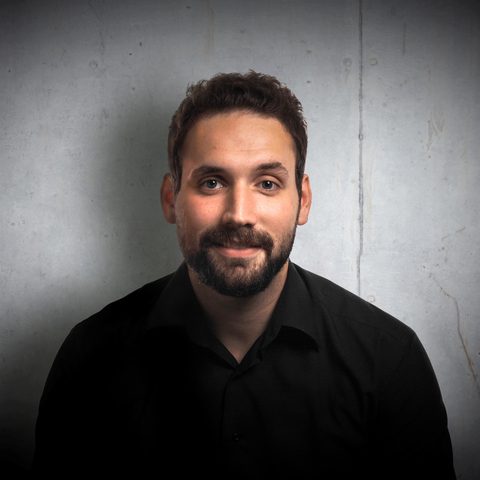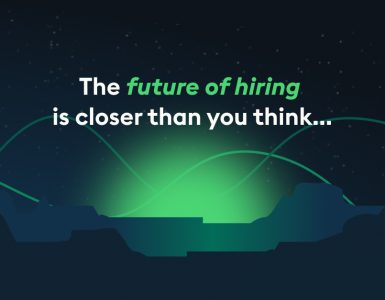Does HR transform business? This was the question behind the recent 11th HR Summit, hosted by the Human Resource Management Association, in Sibenik, Croatia.
For those of us in HR, we don’t usually expect to be feted like actors, athletes or musicians, but we do have rockstars in our midst. Among the awards given out at the recent HR Summit, hosted by the Human Resource Management Association in Sibenik, Croatia, Luka Babic, Head of People Operations at Infobip, walked away with Best HR Manager for last year. Being that Babic is a SmartRecruiters power-user, we tracked him down post-celebration to see how he got from smalltown Serbia to the awards stage.
Hi Luka, tell us a bit about yourself. Where are you from? What kind of kid were you, and what did you see as your future career while growing up?
I was born and raised in Belgrade, Serbia, where I graduated from high school, then moved to the States to attend Harvard University. I was a curious and introverted kid, and I haven’t changed that much. My first dream job was to be a paleontologist, as I was excited about dinosaurs.
Why did you want to study psychology? What was your process getting into Harvard? Who has most influenced you?
After I graduated from high school, I wanted to study biology. I completed all the exams and interviews, and was lucky enough to be admitted to and receive full financial aid at Harvard. The curriculum there was instrumental in helping me explore my passion, and early on I was inspired and convinced by a professor that psychology is the right choice for me. I was introduced to professor Richard Hackman, who was teaching organizational and social psychology courses at the time, and I didn’t realize it, since I wasn’t thinking about pursuing a career in organizational psychology, but his teaching had the most profound influence on how I shaped my career.
How did you get into HR?
I didn’t intentionally choose HR. My intention was to work in IT because of the go-getter mindset of the entire tech movement. While I studied psychology at Harvard, I had a few good friends, literally down the street at MIT, who had already fueled their own start-ups and I found their entrepreneurial spirit to be very contagious. After graduating, I was standing at the crossroads of academia and IT, and eventually decided to pursue a more dynamic career path.
Does your psychology degree play a role in how you do your job as Head of People Ops at Infobip?
As a Psychology graduate, I naturally fit the HR stereotype, but I wasn’t sure what a job in HR really meant. I chose to add my own tactics to this role, and have been leading or team into what really symbolizes Infobip: seamless cross-department team spirit. Infobip’s People Operations cherry-picks practices from Infobip’s Sales, Marketing, Product Development, Support and Business Analysis, and merges them into one function.
How did you first get onboard with Infobip in 2013?
One of the first things our CEO, Silvio, told me once I was offered the job, was that he didn’t care which school I graduated from, be it Oxford, Cambridge, Harvard, or wherever. At Infobip everyone needed to prove their ranks, and I was happy that for once I wasn’t glorified because of the Harvard label. I also liked that mindset that was promoting teamwork and humility. Infobip is an extremely diverse international company with 57+ offices across the globe, where people from different parts of the world work on joint projects with shared goals.
It seems like your latest role developed naturally and internally. What was that growth process like?
My professional growth has been expansive, fast-paced and multifaceted, and I’ve been challenged to take on tasks sometimes broader than a typical HR Manager would carry. It could be compared to being more of an entrepreneur, except I am in an intrapreneurial position. I learn by doing, and I’m convinced that my development is more prominent here than if I chose to work for a company where the patterns, initiatives, and structure were already molded.
What happened that required you to expand your role to Head of People Ops?
It all came very naturally. We expanded our team and the team adapted to changes. We were anticipating growth, so we organized the structure of the team in a way that would support this growth. Our department is never set up; as you continuously grow there is a need for change, and we change on a regular basis. At any given time, Infobip has approximately a hundred positions available. We continue to follow agile principles and have aligned our priorities to business priorities from day one. In a company that grew from 250 to 1300 in five years, our culture was bound to change, and I am happy that we managed to maintain the startup mindset in a semi-corporate structure.
What about your job is the most satisfying? What is the most frightening?
Working in a truly multicultural environment is probably the most satisfying thing. In the past five and a half years I worked in more than 15 countries. I get excited about solving organizational puzzles, and use of social science methods in a business setup. The most frightening thing is the realization that the things that you do, the policies that you implement, affect people’s lives. Mistakes can cause loads of sadness, and as in any profession, we have made some blunders.
Do you think this HR tech revolution is all good, or do you have some reservations?
The tech revolution is affecting every civilizational pore, and what we do is a minuscule part of it. HR needs better data usage, and I believe the key goals of future HR departments will be the better use of analytics, by integrating key HR tools evolving in the digital space. Change in this arena will require a diversification of the HR workforce and inclusion of professionals from different backgrounds. We will most likely see more engineers, data analysts, marketers, and financial specialists joining the HR ranks in years to come. Nonetheless, Peter Diamandis put it well: “It isn’t artificial intelligence I am worried about, it’s human stupidity that concerns me.”

What do you think it was about your process that clinched you for this award?
I think I received the award based on Infobip’s impressive organic growth, along with its multicultural attitude and worldwide reach. Also, People Operations’ influence on global business development impressed the judges, and truly differentiated us from other nominees.
Looking back, what would you tell your 2013 self before he got into Infobip?
I would probably tell myself to invest everything I earned in blockchain. That would have made life easier, for sure.





























